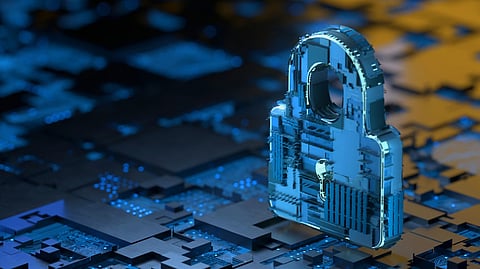
- HEADLINES
- NEWS
- PAGE THREE
- COMMENTARY
- BUSINESS
- LIFE
- ACTION
- GLOBAL GOALS
- SNAPS
- DYARYO TIRADA
- MORE

The United States (US) and the Philippines have renewed their commitment to enhancing a secure and reliable information and communication technology (ICT) ecosystem. This initiative aims to bolster the digital economy, ensure cyberspace stability, and strengthen bilateral cybersecurity cooperation.
The reaffirmation follows the United States-Philippines Cyber-Digital Policy Dialogue held in Washington on 15 and 16 July, where senior officials from both nations gathered to discuss these key issues.
US Ambassador at Large for Cyberspace and Digital Policy Nathaniel Fick Department of Information and Communications Technology (DICT) Secretary Ivan John E. Uy both underscored the essential role of international cyber security and digital policy in reinforcing a shared commitment to democratic values and digital solidarity.
“Both sides provided updates on their respective national cyber policies and exchanged views on bilateral cyber cooperation and developments in regional and international fora,” US Department of State Spokesperson Matthew Miller said.
During the discussions, participants explored new ways for the US and the Philippines to promote cyberspace stability, including through further discussions on the role of accountability in cyberspace and deterring malicious cyber activity, according to a US official.
“Participants discussed strengthening regional cooperation on cyber capacity building and efforts to combat cybercrime, including in the context of the Philippines’ recent admission to the International Counter Ransomware Initiative,” Miller said.
“In particular, the US and the Philippines reaffirmed their commitment to enhance bilateral cooperation and strengthen cyber resilience,” he added.
Also discussed were the protection of critical infrastructure against malicious cyber activity and enhanced collaboration between respective national Computer Emergency Readiness Teams (CERTs); progress in fostering greater regional cybersecurity cooperation and capacity building; the importance of upholding and implementing the United Nations’ affirmed Framework of Responsible State Behavior in Cyberspace; and the continued implementation of cyber confidence-building measures (CBMs).
“These CBMs reduce the risk of conflict stemming from the use of ICTs, including efforts advanced through the ASEAN Regional Forum Inter-Sessional Meeting on Security of and in the Use of ICTs,” Miller explained.
Miller said the US and the Philippines endorsed secure fifth-generation (5G) networks and open, interoperable, and trusted architectures such as Open Radio Access Network (Open RAN).
“The Philippines endorsed the development of a national Open RAN policy framework, reaffirming an open, interoperable, and trusted architecture as announced during the United States-Philippines-Japan Trilateral Leaders’ Summit in April 2024,” Miller said.
“Both countries also welcomed the Philippines’ plan to pilot an Open RAN in its National Broadband Program and Free WiFi project,” he added.
The two countries likewise stressed the importance of cloud computing and satellite connectivity to advance digital connectivity and inclusion and decided to further discussions on promoting cloud policies to promote resiliency and redundancy.
The dialogue included discussions with US private sector representatives on the promotion of 5G wireless technologies, networks, services, and cybersecurity services; public-private partnerships to support the development of the digital economy; international coordination in areas such as data protection and privacy, cross-border data flows, advancing digital freedom, and cybersecurity capacity building; public-private collaboration to foster public trust and support for responsible stewardship of the Internet and digital connectivity; and investments in ICT, emerging technologies, and cybersecurity that contribute to resilient and sustainable growth.
“The United States and the Philippines look forward to identifying further opportunities for cooperation in the United States, Philippines and Japan Trilateral Cyber and Digital Dialogue in October 2024,” Miller added.
